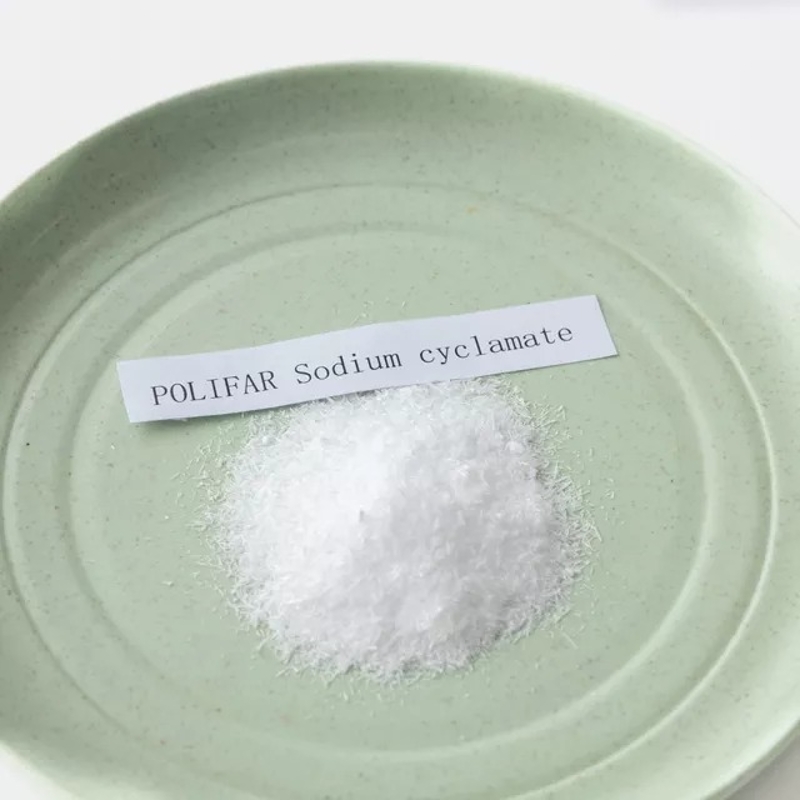-
Categories
-
Pharmaceutical Intermediates
-
Active Pharmaceutical Ingredients
-
Food Additives
- Industrial Coatings
- Agrochemicals
- Dyes and Pigments
- Surfactant
- Flavors and Fragrances
- Chemical Reagents
- Catalyst and Auxiliary
- Natural Products
- Inorganic Chemistry
-
Organic Chemistry
-
Biochemical Engineering
- Analytical Chemistry
- Cosmetic Ingredient
-
Pharmaceutical Intermediates
Promotion
ECHEMI Mall
Wholesale
Weekly Price
Exhibition
News
-
Trade Service
foodmate.
net/tag_3736.
html" class="zdbq" title="Event-related food information" target="_blank">Event background
net/tag_3736.
html" class="zdbq" title="Event-related food information" target="_blank">Event background
On April 13, the Japanese government's cabinet held a government meeting and formally decided to discharge nuclear sewage from the Fukushima Daiichi Nuclear Power Plant into the sea.
For a while, the decision caused strong dissatisfaction among the local people and even the global people.
For a while, the decision caused strong dissatisfaction among the local people and even the global people.
Where does thenuclear foodmate.
net/tag_3900.
html" class="zdbq" title="Wastewater-related food information" target="_blank">waste water come from? This has to be talked about ten years ago.
On March 11, 2011, the Fukushima Nuclear Power Plant in Japan caused a nuclear leak due to the tsunami.
After the accident, Tokyo Electric Power Company continued to recycle sewage.
So far, the stored sewage is about to reach the upper limit of the storage tank and there is no space to build a new storage tank.
Therefore, the Japanese government decided to discharge these nuclear sewage into the sea.
Japan claims that 62 types of radioactive elements have been removed from the discharged sewage, and there is a radioactive element called "tritium" that cannot be removed cleanly, but it will be diluted with seawater and discharged into the sea.
The concentration of nuclear sewage will be diluted to 40 of the international emission standards.
One part, and said that the discharged sewage will not pollute the ocean.
net/tag_3900.
html" class="zdbq" title="Wastewater-related food information" target="_blank">waste water come from? This has to be talked about ten years ago.
On March 11, 2011, the Fukushima Nuclear Power Plant in Japan caused a nuclear leak due to the tsunami.
After the accident, Tokyo Electric Power Company continued to recycle sewage.
So far, the stored sewage is about to reach the upper limit of the storage tank and there is no space to build a new storage tank.
Therefore, the Japanese government decided to discharge these nuclear sewage into the sea.
Japan claims that 62 types of radioactive elements have been removed from the discharged sewage, and there is a radioactive element called "tritium" that cannot be removed cleanly, but it will be diluted with seawater and discharged into the sea.
The concentration of nuclear sewage will be diluted to 40 of the international emission standards.
One part, and said that the discharged sewage will not pollute the ocean.
National response measures
After a lapse of ten years, the Japanese government renewed its decision to discharge nuclear waste water into the sea, which caused protests by people from all over the world.
The local people also held rallies to oppose it, and international organizations and countries responded accordingly.
The local people also held rallies to oppose it, and international organizations and countries responded accordingly.
International organizations
The Director General of the International Atomic Energy Agency Grossi said that the agency is willing to strengthen communication with all stakeholders and actively promote the agency's assessment and supervision work in a fair, objective and scientific manner.
At present, efforts should be made to avoid further harm to the marine environment, food safety and human health.
At present, efforts should be made to avoid further harm to the marine environment, food safety and human health.
Japan
50% of Japanese nationals disagree with the plan of "discharging nuclear waste water into the sea.
" Many civic groups in Fukushima prefecture gathered in front of the Fukushima prefectural government, hoping that the government can be accountable to the people of their country and to the international public interest.
" Many civic groups in Fukushima prefecture gathered in front of the Fukushima prefectural government, hoping that the government can be accountable to the people of their country and to the international public interest.
China
As a close neighbor and stakeholder of Japan, China expresses serious concerns about this.
According to the Ministry of Foreign Affairs, the spokesperson of the Ministry of Foreign Affairs made a statement on the Japanese government's decision to dispose of nuclear waste water from the Fukushima nuclear power plant accident by means of marine discharge.
China responded that the Fukushima nuclear accident was one of the most serious nuclear accidents in the world so far.
It caused a large amount of radioactive material leakage and had a profound impact on the marine environment, food safety and human health.
China believes that Japan's actions are extremely irresponsible and will seriously damage international public health and safety and the vital interests of people in neighboring countries.
China will continue to work closely with the international community to monitor developments and reserve the right to make further responses.
According to the Ministry of Foreign Affairs, the spokesperson of the Ministry of Foreign Affairs made a statement on the Japanese government's decision to dispose of nuclear waste water from the Fukushima nuclear power plant accident by means of marine discharge.
China responded that the Fukushima nuclear accident was one of the most serious nuclear accidents in the world so far.
It caused a large amount of radioactive material leakage and had a profound impact on the marine environment, food safety and human health.
China believes that Japan's actions are extremely irresponsible and will seriously damage international public health and safety and the vital interests of people in neighboring countries.
China will continue to work closely with the international community to monitor developments and reserve the right to make further responses.
United States
On April 12, the US State Department issued a statement on the Japanese government’s decision to discharge nuclear waste water into the sea, stating that Japan’s decision weighed various options and impacts, and complied with globally recognized nuclear safety standards, and expressed support for Japan’s decision.
Korea
On April 13, South Korea’s Ministry of Food and Drug Safety (MFDS) announced that it will clearly convey to the Japanese government its opposition to the relevant Japanese decision and strongly urge the Japanese side to take specific measures.
The South Korean government will take a series of actions, including banning the import of aquatic products from eight counties near Fukushima, Japan, and strengthening the detection of seawater radiation in domestic seas.
The South Korean government will take a series of actions, including banning the import of aquatic products from eight counties near Fukushima, Japan, and strengthening the detection of seawater radiation in domestic seas.
Analysis of the Impact of Nuclear Wastewater on Food Safety
According to research findings, in the initial stage of a nuclear leak, the main radioactive elements were transmitted through the air and settled with the air.
The contaminated ones are leafy plants, such as spinach and lettuce.
Then radioactive elements will gradually be transferred to animals, such as pigs and cattle, through feed and plants.
Japan has seized a large number of "nuclear-contaminated beef" in the domestic market, and the content of cesium per kilogram of nuclear radiation exceeds 8.
7 times the national legal food safety standard.
The contaminated ones are leafy plants, such as spinach and lettuce.
Then radioactive elements will gradually be transferred to animals, such as pigs and cattle, through feed and plants.
Japan has seized a large number of "nuclear-contaminated beef" in the domestic market, and the content of cesium per kilogram of nuclear radiation exceeds 8.
7 times the national legal food safety standard.
With the passage of time, the biggest impact of nuclear leakage is the ocean.
Although it has been purified, radionuclides such as tritium, strontium, cesium, and iodine will still exist in the wastewater.
When nuclear waste water is discharged into the sea, radioactive elements will accumulate in marine organisms, including fish.
As early as February 2018, "radiated fish" were found in the offshore waters of Fukushima Prefecture, with cesium content more than twice the national standard.
.
Many scholars said that radioactive sewage into the sea and radiation exposure will change the DNA of marine animals’ eggs and larvae.
If humans consume large amounts of radioactively contaminated seafood for a long period of time, radionuclides will accumulate in the human body and cause irreversible damage to the endocrine system and nervous system.
Although it has been purified, radionuclides such as tritium, strontium, cesium, and iodine will still exist in the wastewater.
When nuclear waste water is discharged into the sea, radioactive elements will accumulate in marine organisms, including fish.
As early as February 2018, "radiated fish" were found in the offshore waters of Fukushima Prefecture, with cesium content more than twice the national standard.
.
Many scholars said that radioactive sewage into the sea and radiation exposure will change the DNA of marine animals’ eggs and larvae.
If humans consume large amounts of radioactively contaminated seafood for a long period of time, radionuclides will accumulate in the human body and cause irreversible damage to the endocrine system and nervous system.
National regulations on radioactive pollutants
In order to ensure human food safety and health, and avoid excessive intake of nuclear-contaminated food, international organizations and some countries have also made relevant regulations on the residue limits of radioactive contaminants in food.
Among them, CAC clarifies the residue limits of strontium, cesium, iodine and other elements in baby food and non-baby food; the EU stipulates that the maximum residue limit of tritium in drinking water is 100Bq/l, and clarifies that strontium and iodine are used in vegetables, fruits, nuts, and milk.
Residue limits in foods such as products and baby food; the United States has established the residue limits of iodine in domestic and imported foods; China has specified the residue limits of strontium and iodine in fresh milk, grains, meat, fish and shrimp, vegetables and fruits.
; Japan stipulates the residue limit of cesium in dairy products, foods for infants and young children.
Residue limits in foods such as products and baby food; the United States has established the residue limits of iodine in domestic and imported foods; China has specified the residue limits of strontium and iodine in fresh milk, grains, meat, fish and shrimp, vegetables and fruits.
; Japan stipulates the residue limit of cesium in dairy products, foods for infants and young children.
Event summary analysis
The researchers said that if Japan finally discharges nuclear sewage into the sea, the entire radioactive material will spread to most of the Pacific within 57 days from the date of discharge.
The United States and Canada will be affected by nuclear pollution in three years, and the world will be affected in 10 years.
The ocean will be polluted.
Japan’s actions are not only harmful to Japanese people, but countries and seas such as China, the United States, and South Korea will be affected, and it will endanger humankind all over the world.
For the health of all mankind, it is hoped that relevant stakeholders can thoroughly evaluate the feasibility of Japan's nuclear wastewater treatment plan, discuss together, and make the best decision carefully to avoid harm to the marine ecological environment and return a pure ocean to mankind.
The United States and Canada will be affected by nuclear pollution in three years, and the world will be affected in 10 years.
The ocean will be polluted.
Japan’s actions are not only harmful to Japanese people, but countries and seas such as China, the United States, and South Korea will be affected, and it will endanger humankind all over the world.
For the health of all mankind, it is hoped that relevant stakeholders can thoroughly evaluate the feasibility of Japan's nuclear wastewater treatment plan, discuss together, and make the best decision carefully to avoid harm to the marine ecological environment and return a pure ocean to mankind.







